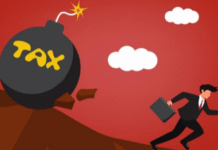Stocks are all set to end the year in the red territory, as the market failed to recapture its pre-2011 shine in 2012.
The price slide, which started in January 2011, continued well into 2012, with the odd gains here and there.
DGEN, the key index of the Dhaka Stock Exchange, have so far lost around 22 percent, which coupled with last year's drop of 37 percent. This continuous slide had a demoralising effect on investors who were otherwise hopeful of a comeback in 2012.
The market came down to 3,809 points — the lowest in 27 months — in the first quarter of the year, making investors fearful of another crash, the third in a space of a year.
Liquidity crunch due to a tight monetary policy and the finance minister's remark that the economy was under a “dark shadow” due to recession in the West, were to blame for the drop during the quarter.
The market rebounded in the second quarter, rising to 5,502 points on April 17, on the back of the flagging liquidity crunch.
The government's initiative of compensating the retail investors who lost money during the downswings of 2011, too, created a positive sentiment in the market.
But the positivity wore off soon, with the market crossing the 4,000-point mark, once again, in the next two quarters.
All other market-related indicators eroded in value, too: daily trade slumped by 66 percent, while the total market capitalisation fell by 10 percent.
Institutional investors, the market movers and shakers, were almost inactive throughout the year due to liquidity crunch of their own.
Furthermore, banks and non-bank financial institutions' stockmarket exposure dropped to under 2.5 percent of their total deposits, in preparation of the changes due to be made to the Companies Act.
A proposal is in place to amend the Companies Act such that banks and financial institutions would be allowed to make investments of up to 25 percent of their paid-up capital in the stockmarket.
Mutual funds that have entered the market in 2010 — when they were at their peak — have been watching the market movements from the sidelines.
The total market capitalisation to gross domestic product ratio now stands at 25 percent — down from January's 34 percent — meaning the market is considerably undervalued.
So far this year, 10 companies raised Tk 774 crore from the market through initial public offerings (IPOs), while a Tk 100-crore mutual fund was floated.
Demutualisation of the stock exchanges was a much talked issue this year.
The cabinet on October 18 gave the final approval to the draft of the Exchanges (Demutualisation) Bill, 2012 that seeks to ensure transparency, efficiency and accountability in the stockmarket through separating the ownership of stock exchanges from the management.
Another major development in 2012 was the elevation of the stockmarket regulator's powers through amendment to the securities laws and ordinance.
Under the Securities and Exchange (Amendment) Act 2012, the regulator was empowered to form a special tribunal for speedy disposal of stock-related cases.
And as per the Securities and Exchange Ordinance, the regulator can frame its own budget and the employees will get financial benefits, like the central bank.
Bangladesh Securities and Exchange Commission (BSEC), the regulator, in October announced a 10-year master plan for the capital market — to restore stability.
According to the plan, the BSEC already introduced a modern surveillance system to monitor the market.
It will now formulate the Financial Reporting Act to improve the auditing system, along with demutualisation of the stock exchanges and setting up of a derivative market.
The BSEC will also prepare a long-term guideline on initial public offerings and a national policy on financial literacy, and establish a separate clearing corporation.
This year, the BSEC tried to act as a 'mature institution' and refrained from intervening with the daily trading although the market went through ebb and flow.
Rather, the regulator was busy with modifying the existing rules and regulations and formulating new laws to regulate the market and making it more transparent and accountable.
Faruq Ahmad Siddiqi, a market analyst and a former BSEC chairman, said the market did not perform well; both the index and turnover have been on the slide throughout the year.
“Investors' confidence has not recovered from last year's crash,” said Siddiqi.
He said the loan providers, which disbursed share credit in 2010 when the market was bullish, could not recover most of their loans in the last two years, which curtailed their operational ability and market exposure.
“The credit providers, especially the merchant banks, do not have the ability to extend loans anymore. Besides, given the market situation, there are no clients left to receive the loans,” he said.
Moreover, the incentives that were given to the market from the government did not have the desired effect, according to the former BSEC chairman.
“Overall, the money market was not in a good position, and for this reason liquidity could not be switched to the capital market,” he said, adding that the market would need more time to get back on its feet.
Md Ashaduzaman Riadh, LankaBangla Securities' head of research, said the “whimsical movement” of the market “in both directions” jolted the investors' confidence this year.
“If we analyse the economic factors — first, in the way that they affect interest rate and overall market liquidity, and, second, in the way that they affect company earnings — conditions were not friendly for the stockmarket.”
He said though extreme anxieties loomed at the beginning of the year from both the fiscal and monetary frontiers, they have been comfortably managed in the end.
Sustained revival of the market was repeatedly thwarted by the poor corporate profitability, tight liquidity and shaky investor sentiment, Riyadh said.
“Monetary tightening through direct and indirect policy tools was at the extreme phase in 2012 and that largely curbed the fund flow from individual and institutional investors.”
He said behavioural perspective had a large part to play in 2012, despite the regulator's honest efforts to resuscitate the market.
Source: The Daily Star










